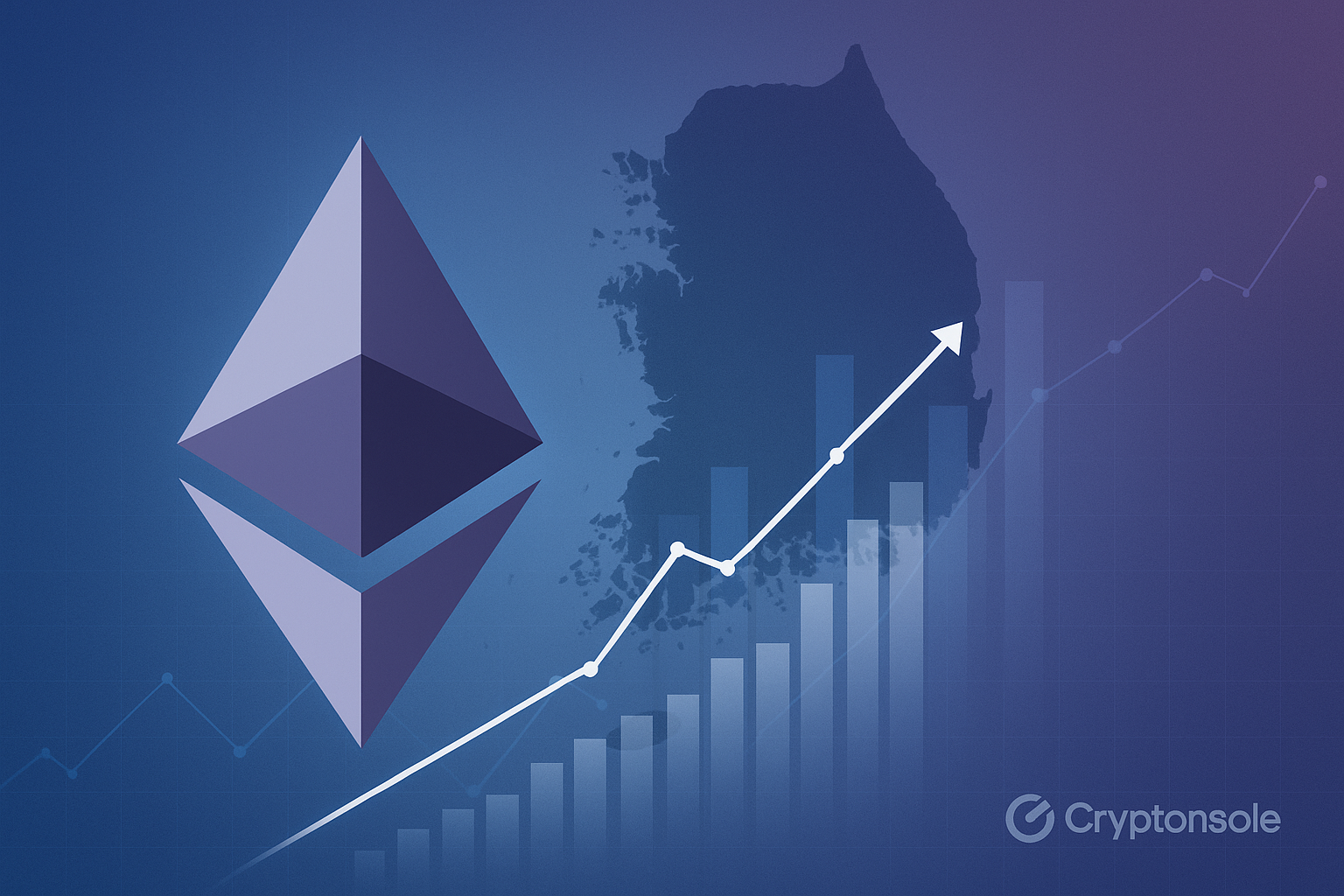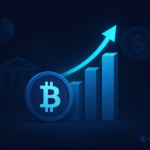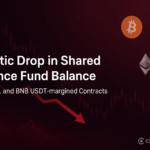Key Developments
- A fintech firm backed by Alibaba founder Jack Ma, Yunfeng Financial Group, led a USD 22 million Series A funding round for Anthea Holding, a Bermuda-registered crypto insurance startup, signaling further investment into Ethereum-based products.
- Yunfeng itself earlier disclosed the purchase of 10,000 ETH (≈ USD 44 million) to serve as part of its strategic reserve and support real-world asset (RWA) tokenization and DeFi-linked insurance initiatives.
- Meanwhile, new data from South Korea reveals that over 90% of crypto trading volume on major exchanges is driven by a small subset of “whale” accounts.
- At Bithumb, the top 10% of users are reported to contribute nearly 98% of trading volume in the first half of 2025, while Upbit’s similar metric sits around 89%.
These developments showcase two contrasting trends in Asia’s crypto scene: large institutional forays into Ethereum and the concentration of retail markets under whale influence.
Yunfeng & Anthea: Backing Ethereum Innovation
Yunfeng Financial Group — a Hong Kong–listed financial firm in which Jack Ma holds a meaningful share — is doubling down on Ethereum. In regulatory filings, Yunfeng disclosed the 10,000 ETH purchase (USD 44 million) as a long-term reserve asset aimed to support its ambitions in Web3, RWA tokenization, and crypto insurance.
Yunfeng also led a USD 22 million Series A round for Anthea Holding, a startup designing Ethereum-backed life insurance products. The funding will support Anthea’s launch in Asia and expand its use of ETH for premium payments, claims, or maturity benefits.
In its announcement, Anthea said its mission will utilize Ethereum’s smart contracts and financial infrastructure to reshape insurance delivery and align incentives across traditional risk pools and decentralized finance.
Taken together, Yunfeng’s moves represent not merely token accumulation but strategic investment into infrastructure, product design, and ecosystem growth centered on Ethereum.
Whale Domination in South Korean Crypto Markets
In stark contrast to institutional0 expansion, South Korea’s retail crypto ecosystem remains heavily skewed in favor of powerful, high-volume accounts:
- The top 10% of users on Korean exchanges such as Bithumb, Upbit, GoPax, Coinone and Korbit are reportedly responsible for over 90% of total trading volume.
- On Bithumb, the concentration is most extreme: nearly 98% of trades are attributed to whale accounts during H1 2025.
- Even assets with lower market capitalization show similar patterns: whales still dominate 60%+ of volume in many smaller-cap tokens.
Analysts warn that this level of concentration may distort price discovery, amplify volatility, and produce what appears to be retail-driven momentum that is actually orchestrated by large capital actors.
This dynamic also recontextualizes South Korea’s “listing effect” — the tendency for new tokens listed on exchanges to spike dramatically. These surges may less reflect mass retail demand and more reflect coordinated whale activity.
Contrasting Trends & Implications
Institutional Entry vs. Retail Concentration
Yunfeng’s initiatives reflect growing institutional confidence in Ethereum’s capabilities as more than a speculative asset. Meanwhile, South Korea’s market remains heavily skewed toward a few large players, leaving everyday retail investors with less discretionary influence over pricing.
Price & Volatility Risks
Markets dominated by whale capital are more susceptible to sharp price swings. A coordinated move by large wallets can trigger outsized reversals, especially in less liquid tokens.
Regulatory & Structural Pressure
South Korean regulators have plans to open crypto exchange accounts to institutional participants (3,500 institutions) by year-end — a structural change that might shift the balance of influence away from whales.
On the institutional side, Yunfeng’s approach — securing reserves, investing in insurance infrastructure via Ethereum, and backing related startups — may presage a wave of regulated entrants integrating crypto into legacy finance models.
What to Watch Next
- Further Ethereum accumulation from Yunfeng or affiliated projects — whether more ETH or DeFi infrastructure investments follow
- Anthea’s product launches and regulatory approval in Asia — whether Ethereum-backed insurance products go live
- Shifts in Korean trading dynamics — how institutional entry or regulatory reforms alter concentration metrics
- Listing effect reversals — whether token listing “pumps” remain as strong when institutions enter
- On-chain whale flow tracking — monitoring large wallet movements to spot market shifts
Bottom Line
In recent weeks, the Alibaba-backed ecosystem has deepened its commitment to Ethereum through capital deployment and institutional infrastructure backing. Simultaneously, South Korea’s on-exchange trading remains dominated by whales, with a small fraction of accounts driving over 90% of volume. Together, these trends highlight the widening divide between institutional crypto expansion and retail markets shaped by concentrated capital.
EGDPAV8W












